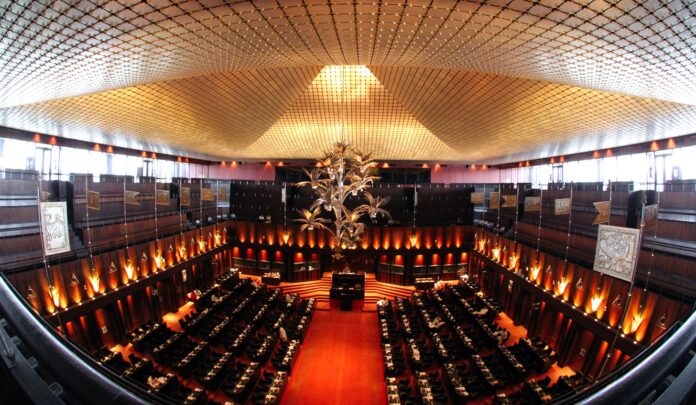By: Staff Writer
August 24, Colombo (LNW): Sri Lanka is moving closer to tightening its financial governance framework with the National Audit (Amendment) Bill, which has now received the green light from the Parliamentary Sectoral Oversight Committee on Governance, Justice and Civil Protection.
The Bill is expected to be taken up for debate in Parliament shortly, marking a critical step in enhancing accountability and oversight of public finances at a time when the country is under close international scrutiny.
The Amendment, drafted in line with recommendations from the International Monetary Fund (IMF) under its Extended Fund Facility (EFF) programme, seeks to strengthen the authority of the Auditor General’s Department by providing it with enforceable powers rather than limiting its role to reporting irregularities.
The IMF has repeatedly stressed that Sri Lanka must overhaul its governance and anti-corruption frameworks as part of structural reforms tied to financial support, making the Audit Bill a cornerstone of that agenda.
According to the Parliament Secretariat, the proposed law empowers the Auditor General to file complaints directly with law enforcement authorities in cases of fraud, corruption, or misappropriation uncovered during audits.
This move aims to ensure that audit findings no longer end with reports but translate into concrete legal action, addressing long-standing gaps in enforcement.
The Bill also introduces provisions for surcharges. The Auditor General will now be able to recommend financial penalties against officials or institutions responsible for losses or deficiencies in transactions.
A Surcharge Review Committee will be tasked with examining these recommendations, determining the amount to be imposed, and setting out the procedures for recovery. This mechanism, long called for by governance experts and development partners, is designed to create real financial accountability within state institutions.
The IMF has emphasized that for Sri Lanka’s public sector governance to be credible, the Auditor General must be equipped with sufficient powers to enforce compliance. Past IMF staff reports have pointed out that weak enforcement and political interference have undermined the effectiveness of audit recommendations.
Strengthening the independence and authority of the Auditor General was therefore listed as a “governance diagnostic priority” under Sri Lanka’s IMF-backed reform programme.
In addition to approving the Audit Bill, the Oversight Committee also reviewed performance reports of key institutions including the Justice and National Integration Ministry (2024), the Justice, Prisons Affairs and Constitutional Reforms Ministry (2023), the Attorney General’s Department (2022 and 2024), and the Legal Draftsman’s Department (2023).
If enacted, the National Audit (Amendment) Bill will mark a major milestone in Sri Lanka’s governance reforms, signaling both to citizens and international partners that the country is serious about curbing corruption and misuse of public funds.
